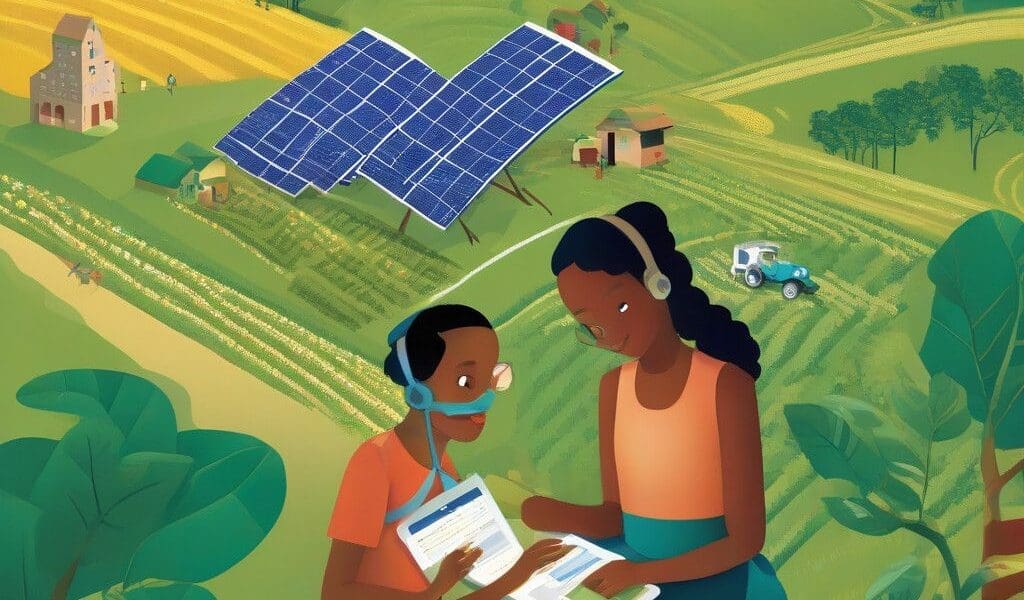IICA Launches a Study on Rural Digital Connectivity in Latin America and the Caribbean
The digital landscape in Latin America and the Caribbean is witnessing transformative changes, especially in rural areas where connectivity can significantly impact agricultural practices and community development. The Inter-American Institute for Cooperation on Agriculture (IICA), in collaboration with global partners like Bayer, Microsoft, and GSMA, has unveiled a pivotal study titled “Breaking down barriers, narrowing gaps.” This comprehensive report sheds light on the essential roles of rural women and youth in leveraging digital technologies, calling attention to the existing digital divide and the steps needed to bridge it.
The study, based on rich qualitative data including 31 interviews across 14 countries, reveals three distinct models of technology adoption prevalent in rural areas. The first model is characterized by intensive adoption linked to higher education levels. Here, individuals with more access to educational resources are more likely to embrace and utilize digital tools. Conversely, the second model highlights the youth’s inclination towards value chain support, indicating that young farmers are adopting technology when it directly benefits their operations. The third model illustrates a concerning trend: many individuals in rural settings are not engaging with digital platforms due to geographical and environmental constraints, leaving them at a disadvantage.
Prominent political figures, such as Barbados’ Prime Minister Mia Mottley and Honduras’ Agriculture Secretary Laura Suazo, have emphasized the crucial role of digital solutions in the transformation of rural agriculture. By harnessing these technologies, rural communities can enhance their productivity, streamline operations, and ultimately achieve better economic outcomes.
Why Does This Matter?
The significance of this report extends beyond mere statistics; it calls for urgent and targeted public policies designed to close the digital divide. To enable effective participation in a digitally driven agricultural future, collaboration between the public and private sectors is essential. Specifically, policymakers are encouraged to develop initiatives that promote affordable financing options and invest in educational programs geared toward technology use in agriculture.
Moreover, the report points out that digital technologies are not merely conveniences; they serve as critical tools in reducing poverty levels and enhancing food security in rural communities. For instance, digital farming tools can provide farmers with data-driven insights on crop management, pest control, and weather forecasts, ultimately contributing to successful harvests and sustainability.
Recommended Actions
1. Joint Initiatives: The report advocates for partnerships between government entities and private companies to develop solutions that ensure digital access for rural communities. This could entail creating community hub centers equipped with internet access and training programs tailored to women and youth.
2. Public Policy Development: Policymakers must focus on crafting public policies that directly address the unique challenges faced by rural areas. Such policies should prioritize initiatives that foster technology adoption and create an environment conducive to innovation.
3. Investment in Education: Funding should be allocated for educational programs that equip rural populations with the necessary digital skills to engage with new technologies. Workshops, online courses, and mentorship programs could play a vital role in achieving this goal.
4. Affordability of Technology: Ensuring that technology is affordable is crucial. Subsidies or financial support mechanisms can help reduce the barrier to entry for many rural farmers who may be hesitant to invest in digital tools.
Conclusion
The IICA study shines a spotlight on the pressing need to address the digital divide in rural Latin America and the Caribbean. As digital technologies continue to reshape agricultural landscapes, it is imperative that rural communities are not left behind. By prioritizing collaboration, crafting informed public policies, investing in education, and making technology financially accessible, stakeholders can create a more inclusive agricultural sector that benefits all.








